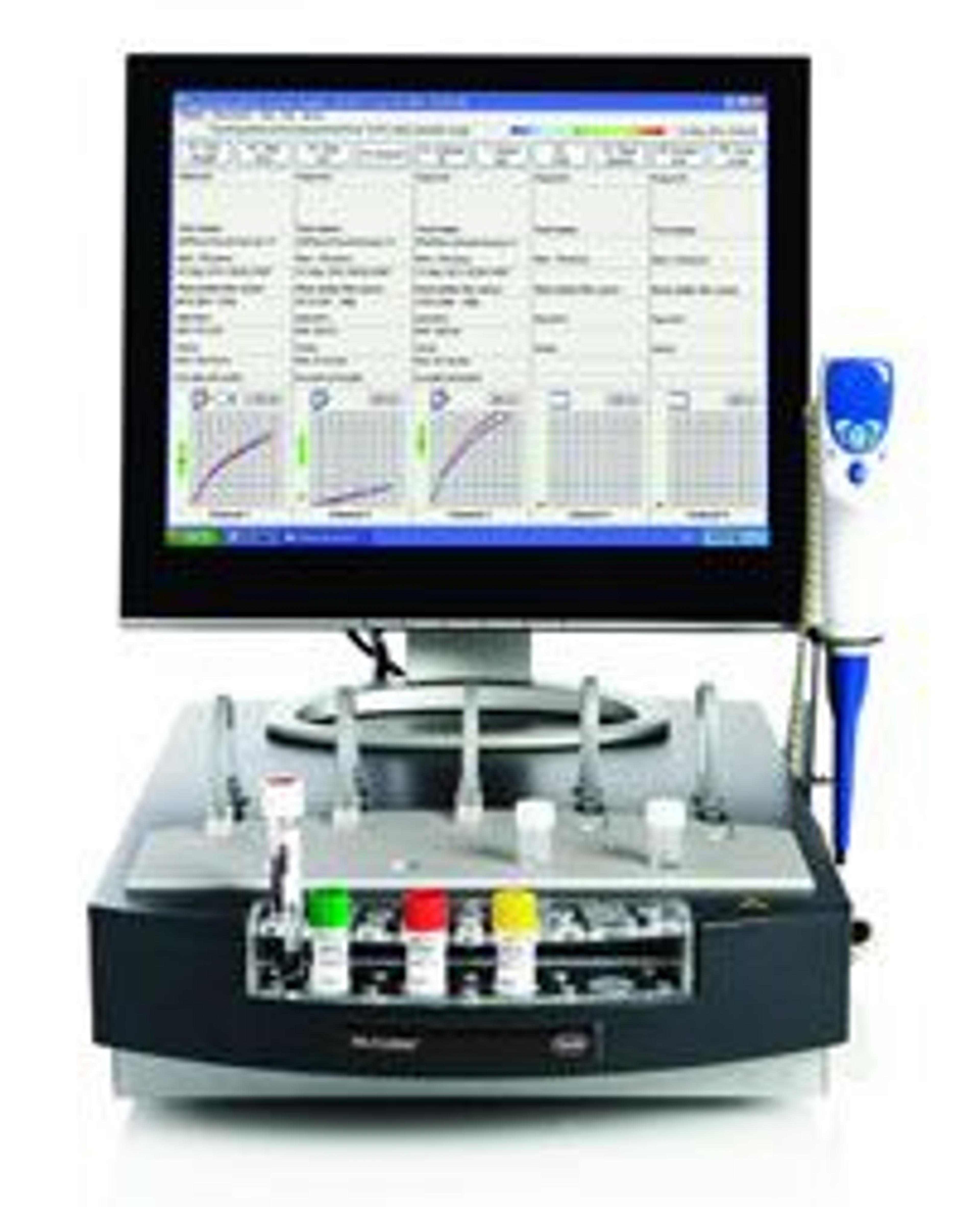Roche Further Strengthens its Vision for Personalized Healthcare with Multiplate Analyzer
29 Apr 2013Platelet function testing using the Multiplate analyzer, now available from Roche, can help to improve outcomes for patients who have had a heart attack or stroke, or who are at risk of bleeding during or after surgery. Multiplate test results help to predict those who are at increased risk of thrombosis or bleeding and allow anti-platelet therapy to be tailored to the needs of individual patients.
Roche has pioneered personalized healthcare in many disease areas, including oncology, hepatology and rheumatology. The addition of Multiplate to its range of hemostasis analyzers further strengthens Roche’s commitment to personalized healthcare by providing powerful companion diagnostics that aid clinical decision-making for hematologists, cardiologists and anesthetists, and help to improve the care of patients with impaired platelet function.
Impaired platelet function can lead to ischemic heart disease and cerebrovascular disease, the two leading causes of death worldwide1. Anti-platelet agents, in particular clopidogrel, are among the most widely used drugs in modern medicine and offer significant improvement in the prevention of thromotic events. However, 20% of patients do not respond adequately to clopidogrel and are at increased risk of arterial thromboembolism2-5. Often this is only detected when the patient experiences a secondary thrombotic event. Other potent, but expensive, anti-platelet agents are now available, such as prasugrel and ticagrelor, which offer advantages and disadvantages over clopidogrel. It is important to identify which patients respond to clopidogrel so that antiplatelet therapy can be tailored accordingly and the risk of ischemic and cerebrovascular events reduced.
A recently published consensus recognized Multiplate as the best predictor of ischemic risk compared to other platelet function testing methods6. Multiplate detects both low and high response to clopidogrel, making it ideal to predict the risk of thrombosis, particularly following procedures such as percutaneous coronary intervention (PCI), and to predict the risk of intra- or post-oprative bleeding. This allows treatment to be tailored immediately, if necessary, to ensure patients are managed safely and effectively. There is growing evidence that tailoring anti-platelet therapy with Multiplate has the potential to improve outcomes and reduce the incidence of major ischemic complications post PCI7.8.
The Multiplate analyzer was acquired during the recent Roche takeover of Verum Diagnostica, an international leader in platelet function testing.

